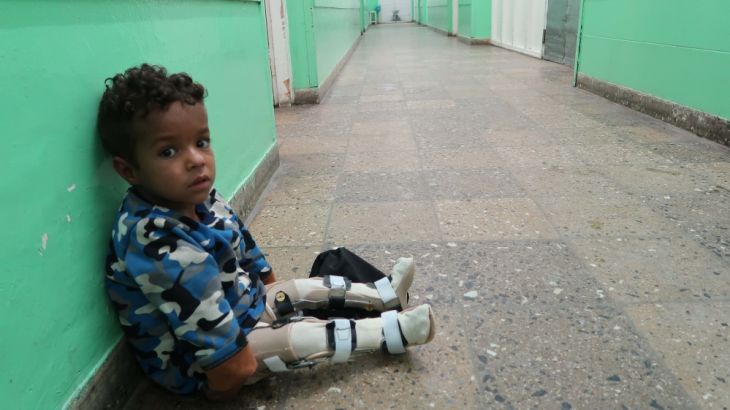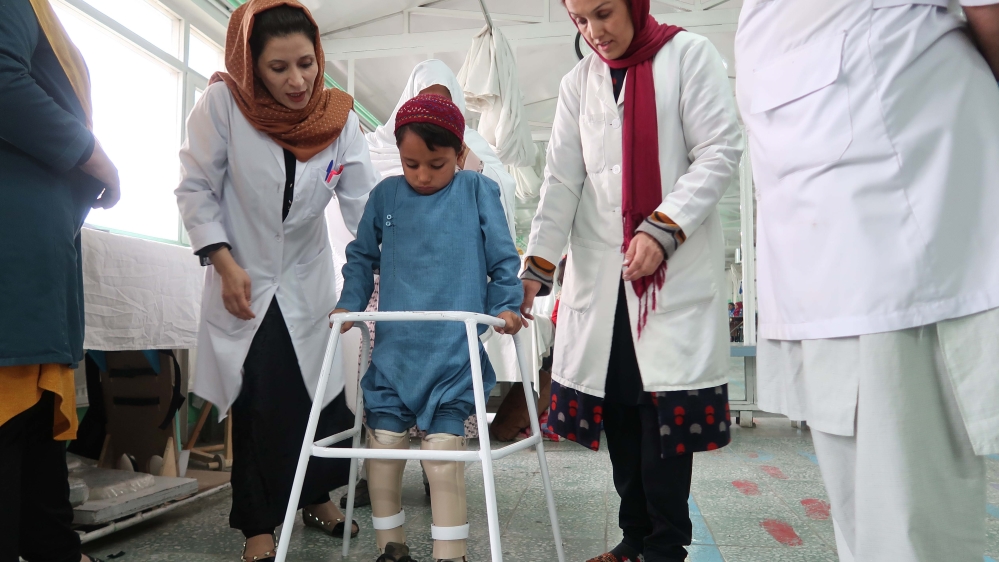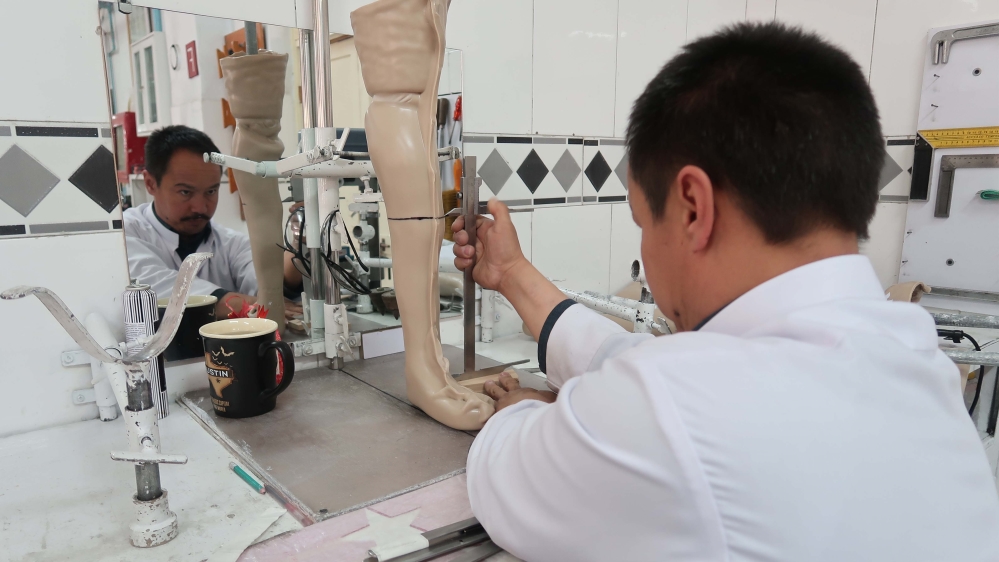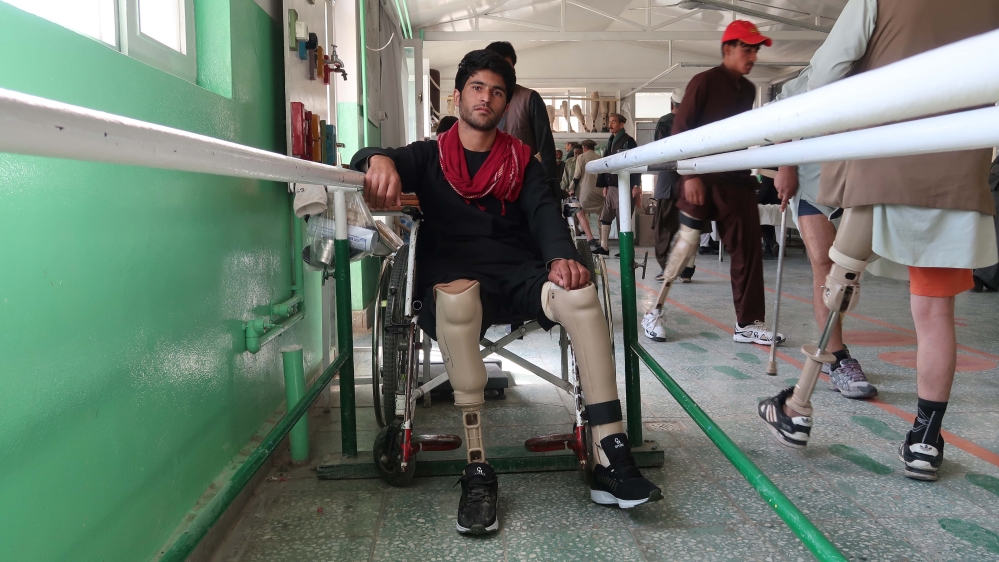Limbs of hope: The healers of Kabul
We meet the health workers of Kabul’s Red Cross Orthopaedic Centre giving amputees new limbs and a new lease of life.

Kabul, Afghanistan – On a crisp spring day in Kabul, physiotherapist Shukrullah Zeerak took me on a tour of the Red Cross Orthopaedic Centre. I struggle to keep up as he races between buildings. Even with a prosthetic leg, he can outpace anyone with his brisk, no-nonsense stride.
Suddenly, he stops and turns to a commotion behind him. A young woman, paralysed from the waist down, has fallen off her wheelchair. She lies on the ground, angry and squirming, but refuses help from the crowd that has gathered around her.
Keep reading
list of 4 itemsWoman, seeking loan, wheels corpse into Brazilian bank
UK set to ban tobacco sales for a ‘smoke-free’ generation. Will it work?
Poland lawmakers take steps towards liberalising abortion laws
Shukrullah watches and waits, as she awkwardly pulls herself off the floor and into the wheelchair. As we walk away, he says: “Did you notice anything? She didn’t want help. She didn’t want to be a victim.”

During almost 20 years of reporting on crises around the world, I’ve frequently sought out victims to tell the story – anguished men, women and children trying desperately to survive the worst experience of their lives. They encapsulate the horror and tragedy of unimaginable events for viewers far away.
Whether you are on a frontline, in a refugee camp or covering a natural disaster, these people are usually presented as objects of pity. But the truth is, they don’t want our pity.
No matter how much sympathy the woman in the wheelchair received, she knew that she was never going to walk again. She didn’t want our token acts of kindness or our fleeting concern. She wanted the freedom to live her life the best way she could, independently and without our pity.
It is a philosophy that is central to the work of the Red Cross Orthopaedic Centre in Afghanistan, and one that Shukrullah Zeerak has devoted his life to.
When he was 17 years old, he stepped on a landmine near his home in Kabul.
“I was naked completely because my clothes were burnt, my face was burnt,” he says. “When I lifted my leg, there was no leg. There was nothing to save.”
“I was not very willing to be alive any more because I was seeing a very dark future, very dark … I did not see anything. No hope.”

Instead of seeking help from his family, Shukrullah told me that he refused to go home until he could walk through the front door on his own. With just one leg and two crutches, he boarded a 19-hour bus to the northern city of Mazar-i-Sharif the day he was released from hospital. Before his wounds had even healed, he demanded that the local Red Cross centre fit him with a prosthetic leg.
“I didn’t want to be an extra burden on my family’s shoulders. I wanted to be independent, I wanted to help my life and maybe help theirs. This is what I decided in my last moments at the hospital, and then I left.”
It was a fateful decision that eventually led to a job as a physiotherapist with the Red Cross Orthopaedic Centre in Kabul. For the past 25 years, Shukrullah has been helping amputees like him live a full life despite their disabilities.
“I feel proud. I feel that I’m not disabled anymore. I feel that I’m better than anyone else because I can support my family,” he says.
“Every day I help at least three, four, five people. I change the life of at least one of them to be lighter in the future. Sometimes they come and hug me. They say, ‘You changed my life’.”

The Red Cross’s orthopaedic programme in Afghanistan has treated more than 180,000 patients since it first began 30 years ago.
The halls of the centre are filled with people injured in the war, and those whose bodies have been crippled by congenital illnesses or accidents.
Each patient I met had a story more tragic than the last, but not once did I meet a victim.